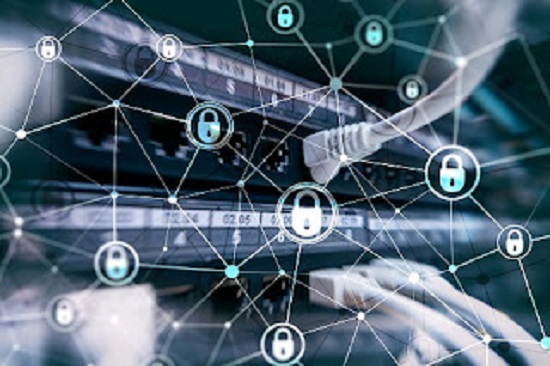
No matter what your business offers in the way of cutting-edge technology services, or if you are focusing on traditional products and/or services, you still need IT support. While it is possible to manage your IT needs in-house, many companies, especially small ones, find they need professional IT services.
What are IT Services?
IT stands for information technology. IT is a broad term that encompasses all aspects of computers, internet as well as other technical devices (IoT). IT services, such as SpartanTec, Inc. in Wilmington NC, assist companies with the management, setup, and troubleshooting aspects like their network, hardware, connected devices and software updates.
The Major Types of IT Services
Startups have different needs than large corporations. Knowing the major IT services is key to determining what you might need in the present as well as the future.
1. Managed IT Services for Low-Level Businesses
Small businesses often hire IT services. These services are the basic and offered by managed IT service providers that offer low-level, pay-per-play services. These services typically include software installation and integration with existing infrastructure to create a new system. You will also receive ongoing support from the MSP through system monitoring.
Important to remember is that if you have a low-level service, your MSP will alert you if there is a risk to security or performance issues, but may not take any action. It is also necessary to plan your IT.
2. Mid-Level Managed IT Service
You may need something more than the above. Mid-level IT services could be a better option. These services are provided by a value-added MSP. The provider will take appropriate action in case of security threats or performance issues. The provider will also maintain your system and update versions as they become available.
You may also get some IT planning at this level. Many value-added MSPs offer scalability planning which allows you adapt the service to meet your changing business needs.
3. High-Level Managed IT Services
High-level managed IT services are available for those with greater needs. You’ll will receive support for your communications, data analytics, network, and other services that are included in a mid-level IT service. The provider may also provide access to a mobile network system that can be accessed from any location.
This level also allows for in-depth planning. You will be notified by the provider of any developments in the IT sector that may benefit your business. They also give you the opportunity to modify the services you receive. You may also be able to include some software-as-a-service (SaaS) subscriptions that would be useful to your company. This will allow you to eliminate the need to store programs and data locally and improve security.
4. On-Demand IT
You can also use an MSP to get services on-demand. You can pay as you go rather than spending a fixed amount per month. This is a great option for businesses that want to avoid long-term contracts.
5. Software Services
Outsourcing software services will ensure that your licenses remain current and that your company complies with all end-user agreements.
These services can save you money especially if your business has been around for a while. The provider may be able to locate licenses you are still paying for, but not using.
6. Network Management
The configuration of network services begins with setting up infrastructure, such as servers and firewalls. Providers may also use security measures to prevent unauthorized logins, and apply two-factor authentication.
You can then receive maintenance such as mobile networking and storage for remote backups. You provider can also monitor your network and respond to unusual activity. You may also need to upgrade your network or repair hardware that is connected to it.
Two networks are common in many companies: an internal network and their internet connection. To prevent security breaches, it is important to secure both networks. You must ensure that your networks are monitored 24/7, especially if your employees have remote access or use a payment system.
 7. IT Communications
7. IT Communications
Communications can include a wide range of services, including voice, data and video calls. A professional IT provider can help you configure and maintain your communications systems. They can also create a customized program for your company.
You may be interested in receiving support from these communications services:
Video conferencing — If your remote employees are involved, video conferencing is a great option.
Voice over Internet Protocol (VoIP), VoIP allows you to make phone calls using an internet connection rather than a telephone line.
Chatbots — A chatbot can be created by an IT provider for your company. Chatbots allow you to communicate with visitors to your website and message you via social media without the need for a live representative. Users may prefer to chat with a chatbot to calling or email, depending on their target audience.
8. Cloud Services
Cloud computing is now a reality for most businesses. Cloud services, for example, allow employees to connect and collaborate from anywhere, making them especially valuable for remote workers or those who work in multiple locations. Cloud services can also be scaled to allow you to pay only for the services that you require, even if your needs change.
One type of cloud service we’ve covered is SaaS. The second type is infrastructure as a services (IaaS), and platform as service (PaaS). IaaS allows you to access third-party infrastructure. PaaS offers computing power and infrastructure that can be used for programming languages and your operating system.
A professional IT consultant can help you determine the best cloud service for your business. After setting up the service, the provider can transfer existing data to the cloud. They may also train your employees on how to use cloud services safely.
A managed cloud service will provide you with support for the future. These services will include responding to errors and training employees.
9. Cybersecurity
 Cybersecurity is the most critical IT service. While many of the services mentioned above cover cybersecurity in some way, it is worth seeking out this service from a specialist if you are particularly at risk (e.g. if your company has sensitive information).
Cybersecurity is the most critical IT service. While many of the services mentioned above cover cybersecurity in some way, it is worth seeking out this service from a specialist if you are particularly at risk (e.g. if your company has sensitive information).
- Neglecting cybersecurity can lead to many problems.
- Your data could be at risk
- Your operation may be disrupted
- You could lose the trust of your clients
- A ransom demand may require you to pay a substantial sum
Anti-malware software will protect you against trojans, spyware, viruses and other malware to improve your security. Cybercriminals always adapt their methods so it is important to ensure that you are using the most recent versions as well as security patches. A professional IT provider like SpartanTec in Wilmington NC can ensure your system stays current.
Cybersecurity is also of major importance if you have a bring-your-own-device (BYOD) policy, which is almost universal for small businesses, as employees tend to use their personal smartphones for work. To secure all devices, an IT provider will utilize mobile device administration. Only secure devices can access company data or applications. You can also remotely wipe these data from devices in case of theft or loss.
Selecting the Right Cybersecurity Services
No matter how big or small your company is, there are certain IT services that are a necessity.
You may choose to hire an MSP depending on your staff’s IT expertise, your time commitment, and the level of security you need. This option is popular with small businesses because it allows them to access a wide range of services from one location. You may also decide to outsource certain services and hire others when you are in need.
SpartanTec, Inc. in Wilmington NC can provide you the security you need. This includes supplementing your IT team or acting as your IT department. We have service packages to fit almost any budget. Isn’t time to call us today for your peace of mind?
SpartanTec, Inc.
Wilmington, NC 28412
(910) 218-9255
http://manageditserviceswilmington.com
Serving: Myrtle Beach, North Myrtle Beach, Columbia, Wilmington, Fayetteville, Florence, Charleston



 7. IT Communications
7. IT Communications Cybersecurity
Cybersecurity
